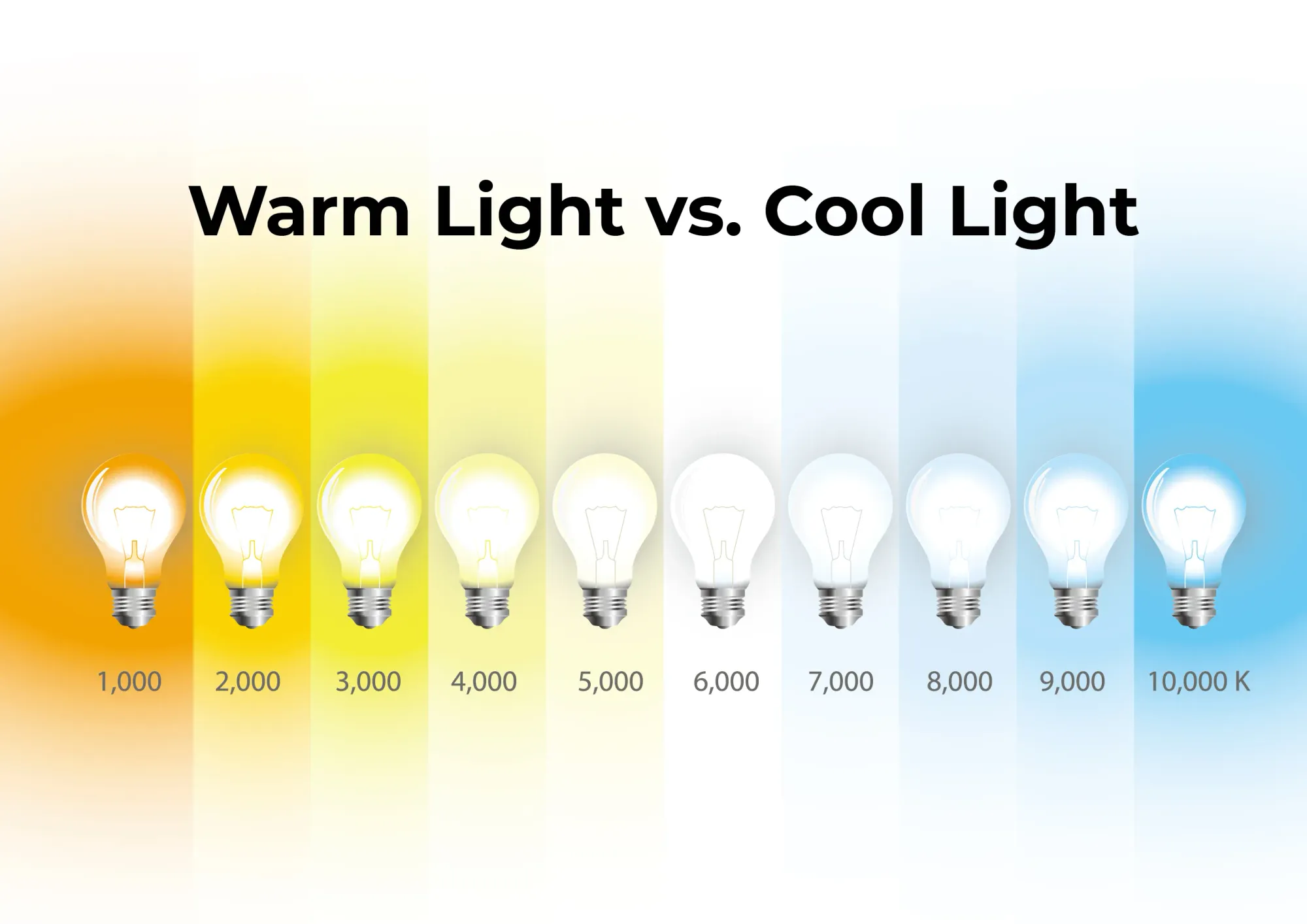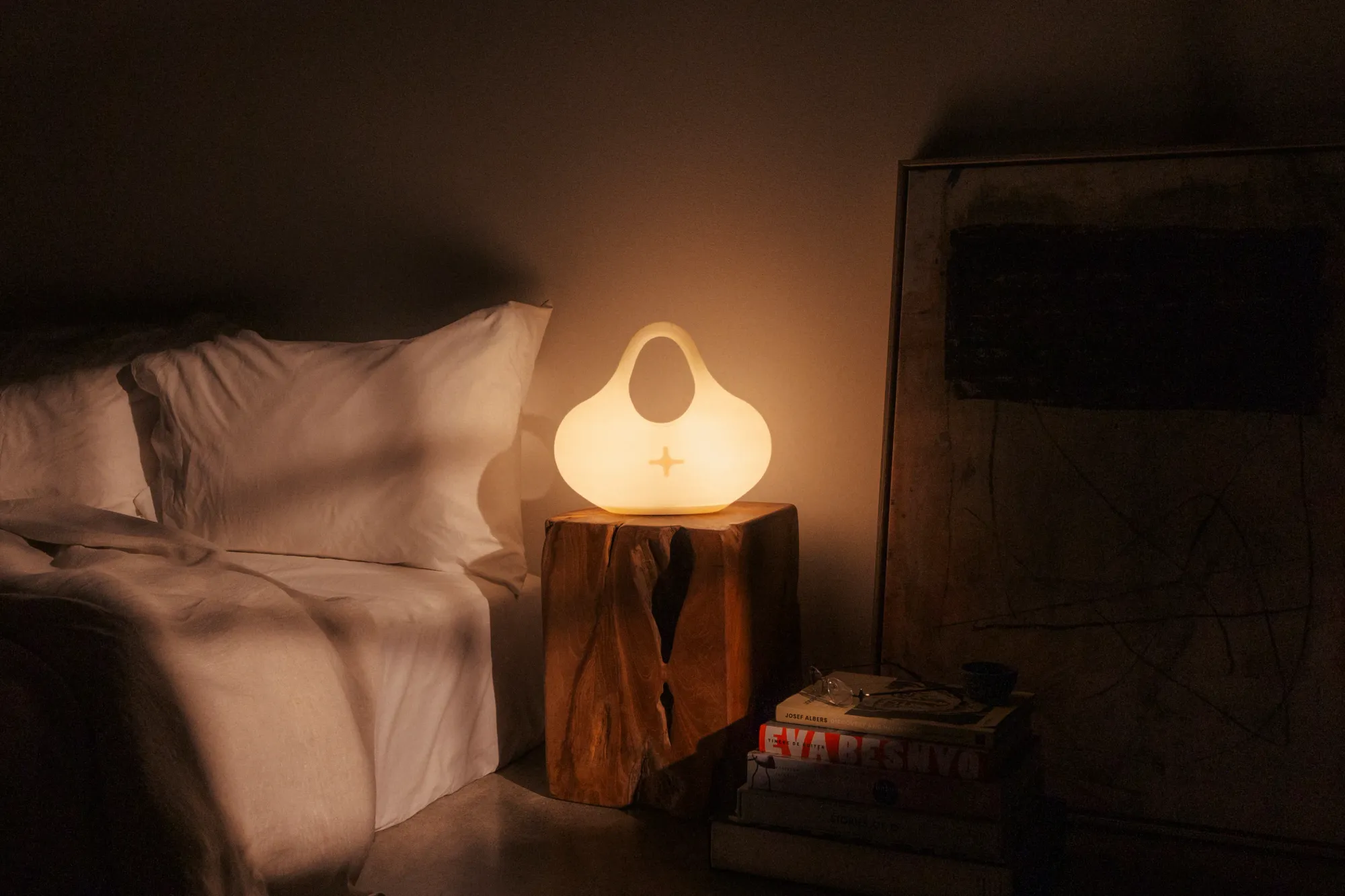Lighting 101: A Light Temperature Guide For Home Lighting
When you’re lighting a home, the color and brightness of the lights make an undeniable difference. Have you ever felt uncomfortable under one of those gross yellow incandescent bulbs? The reason is color temperature. This light temperature guide will explain what it means for a light bulb to have a “cold” or “warm” color temperature and best practices for utilizing this science across your home!
Written by Ian Yang
Sep 21, 2024
When you’re lighting a home, the color and brightness of the lights make an undeniable difference. Have you ever felt uncomfortable under one of those gross yellow incandescent bulbs? The reason is color temperature. This light temperature guide will explain what it means for a light bulb to have a “cold” or “warm” color temperature and best practices for utilizing this science across your home!
The basics of lighting color temperature

Source: infographic from LinkedIn
To understand the basics of home decor lighting, you’ll need to understand the application and science behind color temperature. Don’t worry, it’s simpler than it seems!
What is color temperature?
Color temperature is measured in Kelvin (K). It is a numerical scale representation of the color and brightness of a light source. A light’s color temperature is a shorthand way to say how “warm” or “cool” the light is. The spectrum of light color temperature covers a wide range of color tones. Pretty much all consumer lighting products will be between 1000K and 10,000K.
At 1000K is the “warmest” end of the color temperature scale. Light sources here are a tawny, dim orange like the color of a candle flame. Somewhere in the middle (around 4500K) you will find brighter and more neutral white glows of light. Most consumer light bulbs cap around 6500K. Here you are beginning to find bright blue tones, such as those found on cloudless days or the light from computer monitors.
The science behind Kelvin temperature
Kelvins are the base unit of measurement for temperature. You might be interested to learn that the color temperature scale technically begins at an absolute zero of 0K. The human eye can hardly see this infrared emittance. The scale increases onward sequentially, with each 1°C equaling exactly 1 K.
How color temperature impacts a space

Lighting can do a lot to influence your mood, so choosing light bulbs with the right color temperature for the space is important. Now that you understand color temperature, here are some examples of how to best utilize different bulbs across the spectrum to shine their brightest!
Warm light
Think about the bright, bursting reds and oranges of a sunset. How do you feel looking towards the horizon and being surrounded by all of those warm colors? Warm tones on the lower end of the color temperature spectrum are very popular for creating a comfortable and inspiring atmosphere. You’ll find lights in this range (at 2700K) installed in every light we make here at Gantri!
Soft white light
Soft white light is a fantastic option for making spaces feel lively and active while still maintaining a useful utility. Almost any space can take advantage of this temperature, but these are especially great for home offices. You’ll find bulbs with this color temperature at around 3000K.
Neutral white light
Neutral white lights are fantastic options for spaces that need to be functional as well as aesthetically pleasing. Kitchens, bathrooms, and other utility spaces often have this light temperature throughout for bright coverage of the area. Many task lighting solutions, such as work lights or clamp lamps, also utilize this range. For this color temperature, you’ll be looking for lights in the 3500K-4000K range.
Bright white light
High-brightness white lights should be used sparingly. Outdoor areas can benefit from lights with such a high intensity, but inside they can be disruptive and produce annoying lighting sensations. Lights with this color temperature land at and exceed the 5000K mark.
Room by room light temperature guide

With some of the most common rooms in our homes, it’s important to create a good lighting plan to help make decisions on the kind of products to invest in. Here are some of the common spaces around your home and tips on how to best light them.
Bathroom light temperature
Bathrooms should be well-lit with clear, unobstructed lighting pieces. Task lights are often abundant and recommended for bathrooms for grooming and makeup. Nobody wants to cut their cheeks in a dim light. One great choice is dimmable LED bulbs in the temperature range of 3000-4000K. This bathroom light temperature allows for a more comfortable trip to the bathroom in the dark while still providing bright lighting when needed.
Kitchen light temperature
As one of the most utilitarian rooms in the modern home, kitchen lighting has a lot of heavy lifting to do. Homey and cozy lighting can create a relaxing atmosphere to return to after long days. However, kitchens demand a certain level of brightness to properly use workstations and countertop space.
Consider starting with a dimmable pendant light to create ambient lighting over islands or tables. They’re perfect no matter the conditions. LED strips and under-cabinet lighting can also help brighten countertops obscured by shadows. Temperatures as high as 5000K may be good depending on your kitchen decor, but otherwise, 4000K is more than sufficient.
Light temperature for bedroom and living room
These rooms are a haven for family get-togethers and personal relaxation. These spaces are a great opportunity to choose creative lighting solutions to showcase amazing comfort. Layering lighting in these rooms with multiple lighting solutions and temperatures together means you don’t have to choose one single mood at any time.
Warmer temperature bulbs, like our 2700K LEDs, are perfect for maximizing beautiful light. While higher temperature bulbs provide inviting light for entertaining. Our shop is full of unique designer lights designed to spruce up your living spaces to match the limits of your imagination!
Home office light temperature
Creating a perfect home office is a balance between the needs of your tasks and creating a comfortable space in which to spend hours. If you’re working frequently on a computer then you’ll have to be careful to arrange your lighting so they don’t cause glare. Utilizing a space with natural lighting is a fantastic way to make an office feel less claustrophobic while providing a high amount of light during normal working hours.
Otherwise, a bright standing floor light with a mid-range color temperature can help provide a nice amount of ambient lighting to keep darker days still feeling productive and comfortable.
Let light temperature guide your lighting plan
We hope you’ve learned a lot about color temperatures and how to utilize them with our light temperature guide. With the information we’ve laid out, you should be well on your way to creating the lighting setup of your dreams. You can browse Gantri’s collection of dozens of eco-friendly designer lights at our shop. Or if you’re looking for more inspiration, check out more of our guides, crafted specially to help you create your perfectly-lit space!
© 2026 Gantri, Inc. All Rights Reserved.